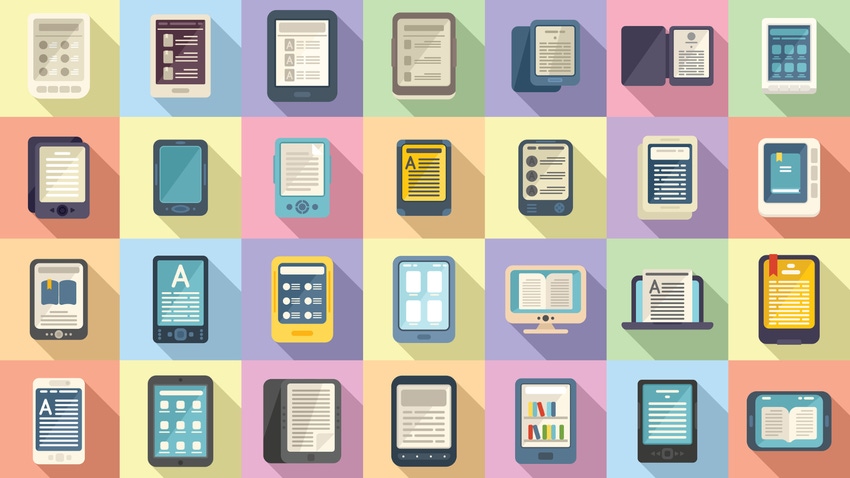The AI-generated Books Trend is Getting Worse
It has gotten so bad that Amazon's new policy limits self-published Kindle ebooks to three a day.

At a Glance
- AI-generated ebooks are flooding the book market. Amazon's new policy limits self-published Kindle ebooks to three a day.
A surge in AI-generated literature is raising concerns among some who believe this trend could undermine the authenticity and value of the reading experience.
The debate is intensifying amid increasing worries about the rise of generative AI and its potential impact on jobs, especially those involving creative professionals. There is growing apprehension that AI-created content might eventually replace human-produced materials.
“It is not yet an existential problem, but it is a looming one,” Todd A. Jacobs, a contributor at the Theia Institute, an AI ethics think tank, said in an interview.
A flood of AI books
The AI-generated book problem has gotten so bad that Amazon has implemented a new policy for Kindle authors, restricting them to self-publishing a maximum of three books per day on its platform.
The influx of AI-generated books on Amazon's marketplace is creating major obstacles for human authors, experts say. It is also making it harder to distinguish between authentic authors and pseudonyms created by AI.
"Whoever is doing this is obviously preying on writers who trust my name and think I have actually written these books. I have not. Most likely they have been generated by AI," author Jane Friedman said in a blog post after finding fake books supposedly written by her on Goodreads. "When I complained about this on Twitter/X, an author responded that she had to report 29 illegitimate books in just the last week alone. 29!"
For authors, AI offers both opportunity and risk since large language models (LLMs) are very good at generating structured, grammatical and human-sounding text, Jacobs said. The U.S. Copyright Office currently does not consider AI-generated works to be copyrightable, and various academic institutions consider the failure to attribute work to the AI system that generates it as a form of plagiarism. Therefore, ownership, copyright and plagiarism are significant risks for both authors and businesses.
In addition, the current generation of LLMs have biases and hallucinations that often make them unsuitable for non-fiction. While there are some systems that do better than others in this regard, human responsibility for fact-checking and general information quality remains high.
For fiction writers, the limited memory of most current AI models, which can hold only a few thousand words of context at a time, makes it challenging to create longer narratives like chapters or novellas without specialized prompts, Jacobs said.
Most AI systems struggle with maintaining structure and continuity in extended texts. Also, most LLMs tend to produce average prose without expert input, a phenomenon known as "regression towards the mean." This trait, he said, often leads to a dilution of the writer's unique style and voice, resulting in writing that readers might find unremarkable, dull, or lacking inspiration.
“Many people are already unwilling to pay standard market prices for an ebook published by a relatively unknown author, compared to the prices routinely shelled out for ‘A-List’ writers who can sell an ebook for around $8.99 and up depending on genre, with technical books often in the $35 to $45 range,” Jacobs added.
“A large influx of low-quality ebooks may or may not affect the A-Listers, but will undoubtedly put downward pressure on B-List writers who often have to price their ebooks at $2.99 to $19.99, again, depending on genre, for readers to take a chance on them.”
For better or worse?
The number of books being generated by AI is hard to come by, but the risks are real, said Bob Rogers, the CEO of Oii.ai, who has co-written books with both human authors and ChatGPT.
He said the risk of AI-generated literature is that when we generate a vast amount of “literature” of low quality, it becomes harder for the reader to separate informative literature from low-quality material generated by AI.
“This means that for the time being, there is a much larger burden on the reader to find good literature,” he added. Even so, he’s optimistic that “in the long run, we will find ways to upvote, review and communicate which literature is compelling.”
Some booksellers are embracing the trend. BookBud.ai recently launched what it claims to be the first-ever online hybrid of a bookstore and library, exclusively featuring books generated by artificial intelligence.
"BookBud.ai offers an unrivaled journey of discovery where every title is available to read online," said Bo Bennett, the site's founder. "This groundbreaking approach ensures that a world of knowledge and entertainment is available to everyone, free of charge, promoting an era of limitless learning and exploration."
And creating "original" work via AI will produce entirely new stories that might never occur to humans, predicted Iliya Rybchin, a partner at Elixirr Consulting. For example, IBM Watson created recipes that bartenders and chefs might never have imagined.
“AI will create more content, better content, and new types of content,” he added. “You talk about de-valuing experience, but I think it will enrich the experience.”
Read more about:
ChatGPT / Generative AIAbout the Author(s)
You May Also Like


.jpg?width=700&auto=webp&quality=80&disable=upscale)
.jpg?width=700&auto=webp&quality=80&disable=upscale)
.jpg?width=700&auto=webp&quality=80&disable=upscale)
.jpg?width=300&auto=webp&quality=80&disable=upscale)
.jpg?width=300&auto=webp&quality=80&disable=upscale)
.jpg?width=300&auto=webp&quality=80&disable=upscale)
.jpg?width=300&auto=webp&quality=80&disable=upscale)
.jpg?width=300&auto=webp&quality=80&disable=upscale)